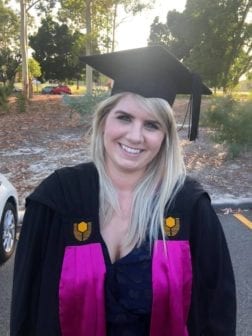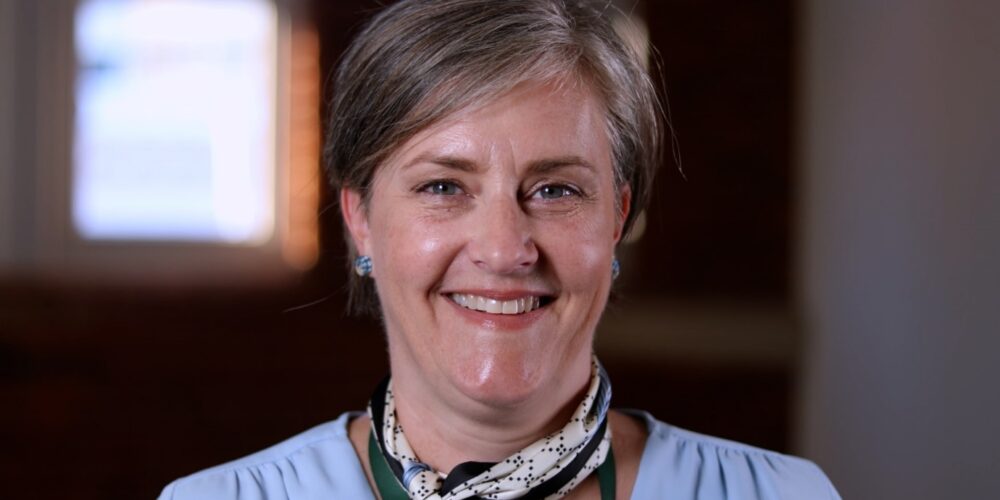Study an MBA without an undergrad degree and keep your day job

You can be a born leader with all the business experience in the world, but if the only qualification you have is a high school certificate, you might reach a rung on the corporate ladder that’s difficult to pass if your peers hold university degrees, particularly MBAs.
In the world of business, the Master of Business Administration, or MBA, is the degree de rigueur for directors and CEOs around the globe. It’s by no means a golden ticket to corporate success, and sure, there are the degree-less Richard Bransons and Mark Zuckerbergs of the world, but most of us, for better or for worse, are not of the same ilk.
In Australia, around 60% of company leaders have a master degree or higher. And of these, almost half have completed an MBA1.
An MBA is valuable proof that you’ve honed your skills under expert tutelage, forged a useful network of contacts and explored business ideas that go far beyond what you encounter during a normal day on the job.
Typically though, an MBA requires applicants to hold a three-year bachelor degree – enough to deter even the most driven business people who haven’t gone to uni. Add the 18-month duration of a normal MBA and you’re looking at a four-and-a-half-year commitment.
But times are changing. Some universities are now allowing experienced business people to work toward an MBA without holding a bachelor degree.
Curtin University is one such place. At Curtin, you can apply for a six-month Graduate Certificate in Business with only three years’ work experience – and start an MBA as soon as you’ve completed it.
A bit more about Curtin’s Graduate Certificate in Business
Offered by Curtin Business School – a recognised elite global business school with a triple accreditation – this course provides foundational knowledge in economics, financial decision-making, leadership and organisational behaviour.
You can choose to study part time, and there are options for evening classes and online study so you can study and keep your day job. Once you’ve completed the four units of the grad cert, you can choose to exit or go on to complete the additional eight units required to gain your MBA.
This direct pathway reduces the duration of the MBA by six months, saving you valuable time and money. For busy professionals, it beats three years of undergrad study!
Nicole’s story

HIF Business Manager Nicole Baron began her insurance career after high school, and for 12 years, she rose through the ranks, forging a reputation as a motivated, innovative leader.
Adding a qualification to her CV was something she wanted to do, but having been away from the classroom for so long, she had no idea how she was going to get there.
“My biggest fear was that I would need to go back to school for year 12 exams,” she admits.
“I called Curtin and the person on the phone said, ‘If you haven’t completed an undergraduate degree, you’ll need to …’
“I waited until she finished, and then asked, ‘what’s an undergraduate degree?’”
A rocky start, but Nicole says the call was incredibly helpful. Her fear of heading back to high school was allayed – instead, the Special Tertiary Admissions Test (STAT) would be the first stepping stone on her pathway to an MBA.
Having passed the STAT and submitting her current CV, she was accepted into the Graduate Certificate in Business at Curtin. While working full-time, she finished the course in six months and signed up for the MBA, which would be another 12 months of study.
She found the workload manageable.
“The hours are perfect, from 5.30 to 8.30pm in the CBD. The weekends are spent working through assignments either in a group or on my own. I’ve also done some intensive units that break up the longer units.
“The networking opportunities let you share ideas and allow you to grasp how on track you really are with your assignments,” she says.
Nicole says her university experience is already helping her professionally.
“Studying the MBA has increased my confidence when leading and managing people. I feel as though I have a stronger grasp on organisations now compared with when all my knowledge was only based on experience.”



